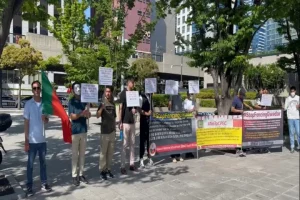With the Afghan badlands witnessing unprecedented and swift changes, all countries in the vicinity—Pakistan, Central Asian republics, India, China and Russia—are worried.
Many have opened up to the Taliban to make peace and put forward their point of view. In July-end, China had invited the Taliban to Beijing to convey that the East Turkestan Islamic Movement (ETIM) is a national threat and the Taliban should not promote it.
Chinese Foreign Minister Wang Yi told Mullah Abdul Ghani Baradar: "We hope the Afghan Taliban will make a clean break with all terrorist organisations including the ETIM and resolutely and effectively combat them to remove obstacles, play a positive role and create enabling conditions for security, stability, development and cooperation in the region".
Experts say that it is too early to say what the Taliban will do. It is also early to say how the ETIM will morphose through Afghanistan's transition.
Dr Adil Rasheed told India Narrative: “The ETIM is part of the global network of Salafi jihadist groups. These pan-jihadist militants oppose the modern international order and the nation-State ideal. They include even Pakistan and China as part of the international order and are opposed to them in principle.”
He adds that besides Lashkar-e-Toiba (LeT) and Jaish-e-Mohammed (JEM) whose umbilical cord is tied to the Pakistani State, most global outfits do not have any affiliation to any country. That is because most of the terror organisations have become self-sustainable.
China fears the ETIM because the group fights for the Muslim-minority Uighurs in the Xinjiang region bordering Afghanistan and Pakistan. The Uighur men have been incarcerated in concentration camps while their families undergo re-education at the hands of the Han Chinese. Beijing fears that the ETIM militants from the Af-Pak regions will cross over into China and stir up unrest in the restive Muslim-dominated Xinjiang region.
Rashid says: "The Tehrik-e-Taliban (TTP) and the ETIM have been working together for long. The Karachi naval blast was attributed to them. These two have an axe to grind against both Pakistan and China. They have now become independent, self-sustaining global jihadi movements".
If the ETIM has taken up the cause of the oppressed Uighurs, the TTP has regrouped and taken on the Pakistani military and the government. Both also have a common interest in attacking China inside Balochistan, where China's massive China Pakistan Economic Corridor (CPEC) investments are vulnerable.
The Taliban is under pressure to de-couple from ETIM and TTP. It is considering the offer as it requires international support from China and military support from Pakistan. Experts say, chances are that it may help the ETIM in a underhand way while mouthing platitudes to the two iron-brothers.
With relations between China and the US nosediving, former US Secretary of State, Mike Pompeo, had in October last year revoked the ETIM as a terrorist organisation, further increasing China's apprehensions about the terror movement gaining ground. Now with the unprecedented shift taking place in Afghanistan, China is once again on uncertain ground despite assurances from a capricious Taliban.




















